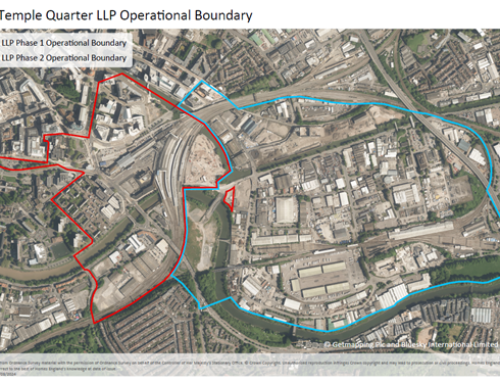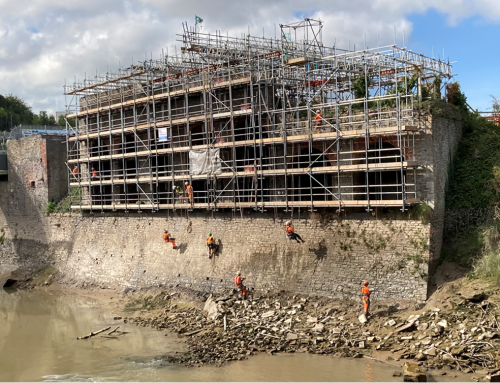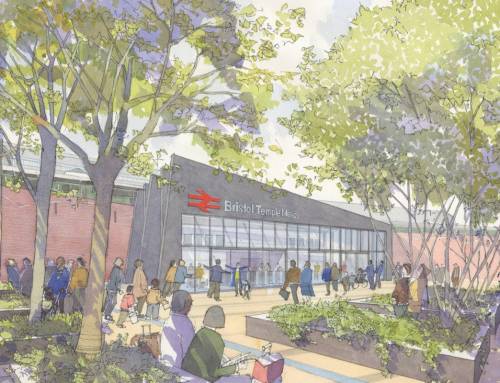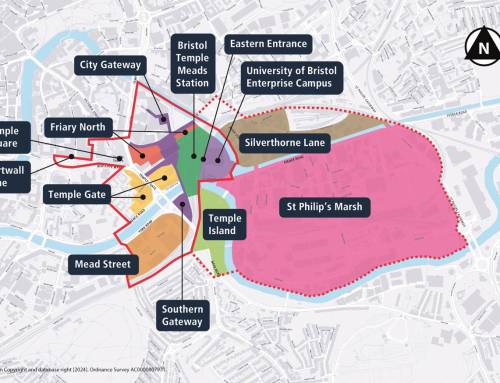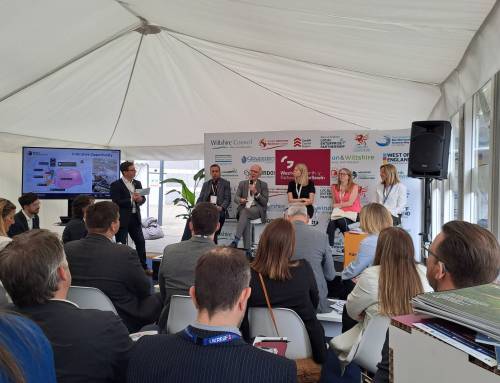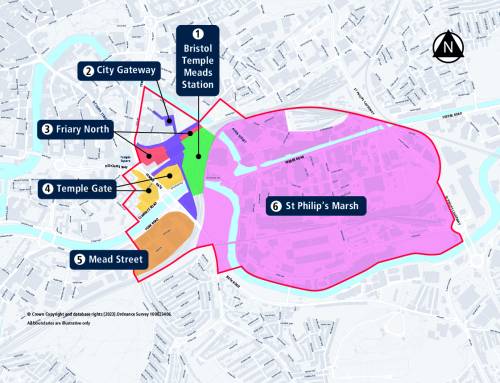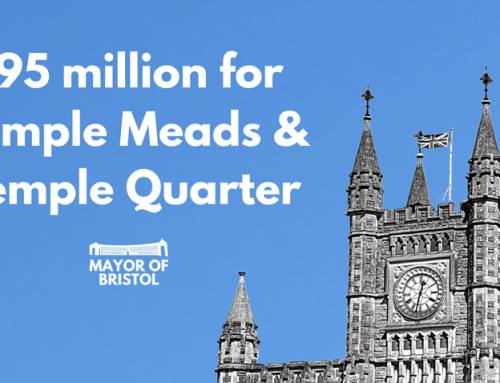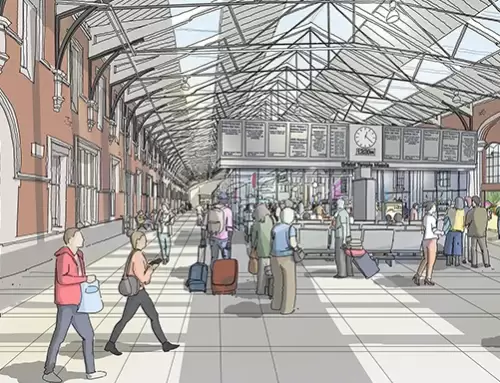International investors are to gather at Downing Street to hear about major opportunities in one of the UK’s key hotspots for global investment, Bristol & Bath, home to one of the country’s most significant urban placemaking projects.
The Bristol Temple Quarter Enterprise Zone (BTQEZ) is an area identified by the West of England Local Enterprise Partnership as a major opportunity to generate growth and attract jobs.
The Bristol & Bath region is among three UK investment hubs to have been chosen to take part in the Government-hosted event on January 27, cementing its reputation as one of the most dynamic and progressive regions in the UK, as well as a thriving hub of enterprise and innovation.
Temple Quarter has been singled out because of the region’s increasingly-lauded reputation as a world-class destination for creative and digital production, high tech, low carbon, aerospace and advanced engineering, all supported by a thriving professional and financial services industry and powered by a dynamic commercial and academic R&D base.
Temple Quarter has already proven itself as a destination of huge potential. Since 2012, it has created more than 1,000 jobs. Interest from inward investors suggest a further 4,000 jobs could be added to the Enterprise Zone in the coming three years. It has attracted significant private investment including £40 million by Salmon Harvester in developing 90,000 sq ft at 2 Glass Wharf, now part let to PwC at a record rent, and £82 million invested by Aerium in buying 216,000 sq ft at 1 Glass Wharf, now 80 per cent let to law firm Burges Salmon.
At the heart of the Enterprise Zone is the electrification of the Great Western Railway line to Swansea with Temple Meads, a pivotal station in the line’s development. Journey times to London will be cut by 20 minutes, while frequency and capacity will be increase. The line will be complete by 2018.
The £700m investment will include the transformation of the Temple Meads station, which will generate a range of commercial, residential and leisure investment opportunities. Aligned to the station will be the spectacular new 12,000 Bristol Arena, a £90m investment by Bristol City Council, currently the subject of an international design competition led by the Royal Institute of British Architects.
Over the next 15 years, Temple Quarter will be transformed into a vibrant destination combining workplaces with a unique leisure and residential offering, making the most of its waterside location.
Bristol City Council, the West of England Local Enterprise Partnership and Invest Bristol & Bath will attend the Downing Street event with the aim of attracting investors who are keen to embrace the region’s independent spirit and unique culture.
Bristol & Bath at a glance:
- Home to the most productive financial and professional services sector in the UK outside London and Edinburgh, representing 25 per cent of Bristol’s economic output.
- One third of FTSE 100 companies have a base in the area
- Home to four leading universities and SETsquared, Europe’s number one business incubator (University Business Incubator Index)
- Highest number of entrepreneurs per capita
- Home to largest aerospace cluster in the UK
- Named as only fast-growing, globally-significant tech cluster in UK outside London in 2014 (McKinsey & Co/Centre for Cities)
- Bristol ranked best place to live in UK by The Sunday Times, 2014
- Bristol first UK city to be granted European Green Capital status
- Named as one of the top ten city regions in Europe by The Financial Times, 2014
- Highest performing ‘Core City’ region in England
- Bristol recorded the highest increase in office take-up in 2014 amongst the nine cities studied in the latest Big Nine Report from commercial property adviser GVA.
George Ferguson, mayor of Bristol, said: “We are excited about what’s happening in the Bristol & Bath region and where it’s going. Already a world leader in many respects, I believe the region is coming of age in the twenty first century. It is thriving and proving itself as a global a centre of excellence in cutting edge engineering, high tech innovation, creative and digital industries and low carbon technology, which is why Bristol is the UK’s first city to have European Green Capital status.”
Colin Skellett, chair of the West of England Local Enterprise Partnership, said: “The West of England LEP has a bold and ambitious economic strategy to ensure the region continues to be a consistent high performer and to drive further growth and the creation of jobs. To meet these goals we need central government to devolve more powers locally and so give greater freedom and flexibility to unlock our potential as a city region”.
“The office market in Bristol city centre has reached saturation point, resulting in significant demand for new, high quality office space not only from businesses already based in the region, but from those looking to relocate into the area as well. National and international businesses are increasingly attracted to the Bristol & Bath region’s key sector strengths in high tech, creative and digital, aerospace and advanced engineering, and low carbon, as well as its well-established skills base, excellent transport links and the fantastic quality of life.”

